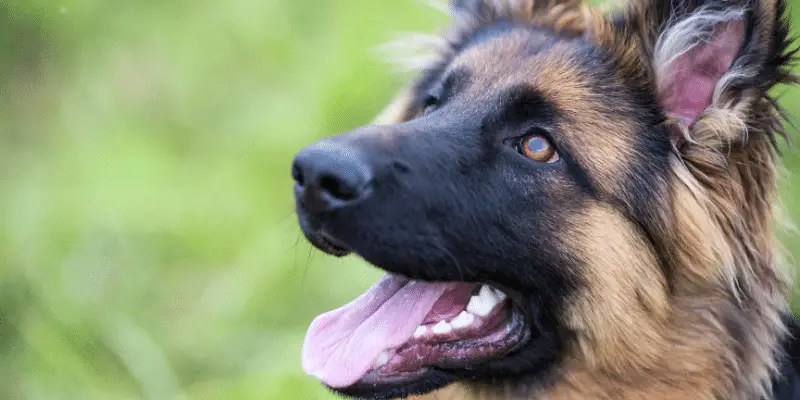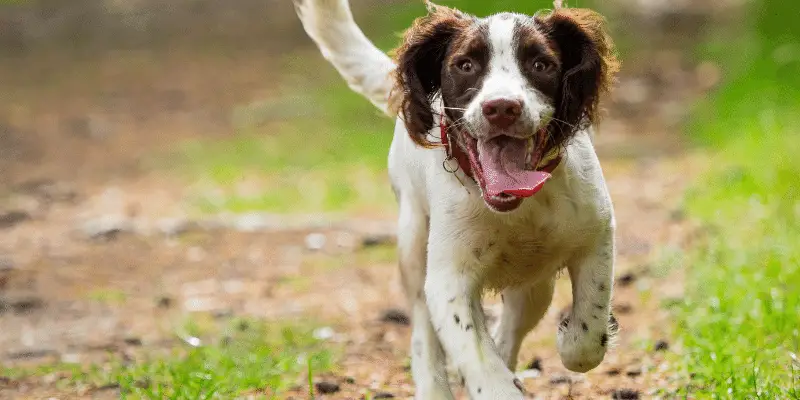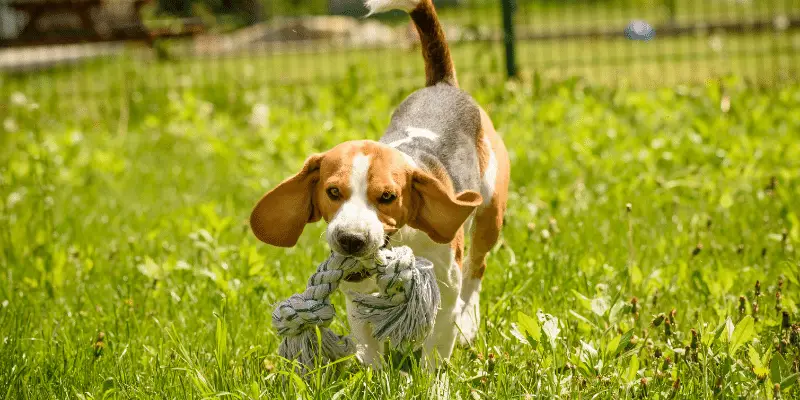Puppies are entering the adolescence stage by this point, and it is the most difficult stage to start training at. That is why it is important to start training them as young as possible!
Puppies have a lot of learning to do in their early months, just like human babies do, especially when it comes to navigating their new environment and picking up polite behavior.
We turned to AKC Canine Good Citizen Evaluator and Doggie Academy Manners Program Director Kate Naito, a certified dog trainer, for advice on how to encourage that learning.
6 Puppy Development – What to Expect
It seems like yesterday that you were first bringing your tiny puppy home. However, your dog is now regarded as an adolescent at age 6 months.
They’re nearing the end of their developmental stage, and before long you’ll be dealing with an adult dog. You must be ready because a 6-month-to-1-year-old dog has very different care requirements than dogs of earlier ages, which we’ve also discussed.
And to assist you in raising a healthy and content adult dog, we’ll cover all the details of puppy development from month six to year one.
Your puppy ought to be on a regular schedule by this point so they know what to anticipate every day. But if you haven’t yet created a routine for your dog, you can use the one below as an example.
| Time of day | Activity |
|---|---|
| 7am | Potty break and activity. |
| 8am | Meal/drink and activity |
| 9am | Sleep |
| 12pm | Potty break and activity |
| 4pm | Sleep. |
| 6pm | Potty break, meal and activity. |
| 8pm | Activity until bedtime. |
| 10pm | Potty break and bed. |


The most frequently asked question by 6 month old puppy owners is “When do they need to get neutered? ” Most veterinarians are moving away from neutering pet dogs at a young age, especially when it comes to larger breeds and nervous dogs.
After a dog reaches the age of six months, we frequently wait another year or so before neutering them because we want them to be fully developed (both physically and mentally).
Your puppy should ideally be housebroken and crate trained by the age of six months. Although some puppies may occasionally have an accident, this shouldn’t happen frequently.
Your puppy should be able to distinguish between improper and proper behavior at this point because their brains are fully developed.
Working on some fundamental commands, like sit, stay, and lay down, is a good idea right now. You can begin including additional maneuvers like rolling over, crawling, and catching.
If you haven’t already, consider teaching your puppy recall (i.e., come back when called). This is handy during off-leash walks for when you need your pooch to return to you. Teaching your dog to drop items on cue is also important, particularly if they get their paws onto something they’re not supposed to.
You should continue training sessions after your puppy has acquired all the necessary knowledge to keep them alert. If you don’t, your puppy might experience a sudden case of forgetfulness, which could hinder their training.
Around this time, you might notice your puppy developing undesirable behaviors or bad habits. Be sure to change any problematic behavior as soon as you can.
Don’t succumb to the urge to ignore it or assume that it will disappear once your dog reaches adulthood. The longer you wait, the more difficult it will be to fix.
Ask your veterinarian for advice or seek the help of a dog trainer if you’re having trouble controlling a misbehaving puppy.

At six months old, your puppy is essentially a teenager, and their behavior will be very different from when they were eight or even sixteen weeks old. They will likely be energetic, playful, and much more independent.
It’s also common for puppies to get a bit rebellious and destructive during this stage of development. They may start regressing in terms of training, seemingly “forgetting” all the things you’ve previously taught them.
Don’t lose heart and carry on with the training of your dog. Your puppy’s misbehavior isn’t personal; it’s just something that occurs during the adolescent stage. Be consistent and repetitive with sessions, and above all else, don’t lose hope.
By making sure your dog receives plenty of physical and mental stimulation, you can aid in reducing mischievous behavior. For rascal puppies, puzzle toys, fetch games, tug-of-war matches, and even agility courses are excellent ways to keep them from getting bored.
You might observe a change in your puppy’s behavior toward other dogs in your home along with a newfound rebellious streak. Adult dogs will know your pup isn’t so young anymore. If your puppy violates any rules, they will be less likely to turn a blind eye.

The Vet’s top tip – 6 month old puppies
“Adolescence begins at six months, and it can also signal the beginning of a number of behavioral problems, such as separation anxiety and resource guarding. Be patient with your teen because he or she might be having trouble following the rules and may start to rebel while receiving training.
They need you to stand by them, be firm, and shower them with praise and rewards when they behave properly. Contact a reputable canine behaviorist right away if you notice any troubling behavioral issues. — Dr. Linda Simon MVB MRCVS

Even though they are bigger and stronger, your 6-month-old puppy still needs a lot of sleep every day. At 6 months old, most puppies sleep for roughly 14 to 18 hours per day because all that playing and exploring is exhausting.
Make sure to allow them to take a nap after a walk or vigorous playtime. Besides, at least they aren’t causing trouble while your dog is sleeping!
Additionally, your four-legged friend should be older enough to sleep through the night without needing any potty breaks. As a general rule of thumb, a puppy can hold their bladder one hour for every month of their age. So, a 6-month-old dog should be capable of going 6 hours without needing to eliminate.

What if my puppy doesn’t follow the lure?
The puppy may lose interest in the lure or even become frustrated and try to claw, jump at, or bite it if it moves too quickly or is out of reach. To keep the puppy’s interest and attachment high, make sure the lure moves at a speed that is simple to follow, that it is always within the puppy’s reach without jumping or grabbing, and that frequent small licks or bites are administered.
When a puppy is captured, it is doing the desired behavior naturally. The trainer “marks” the behavior when it occurs and then gives the puppy a treat or a toy as a reward. Capturing is advantageous because it teaches people to regularly observe the puppy’s behavior and to be vigilant for moral decisions. Watch for right choices, mark them, and reward them after the marker. Puppies make a lot of right decisions every day, though the decisions may be brief at first.
FAQ
Is it too late to train my dog at 6 months?
Although it’s best to teach some things to dogs when they’re young, your dog can still learn at any age. Even though the process may be more difficult and take longer with some training methods, there is still hope for your older dog; in fact, quite the opposite is true.
Can puppies be trained at 6 months?
Most dogs are fully housebroken and in charge of their bowels and bladders by the time they are six months old. House training is mainly complete at this point. Some puppies will still have the odd accident inside the house, particularly if the routine is changed.
What can I teach my 6 month old puppy?
Your puppy should be fully trained and have a strong foundation in potty training, crate training, and socialization by the time they are 6 months to 1 year old. You will now work with your puppy to reinforce what they have learned moving forward.
What age is too late to train a dog?
It’s never too late to train a dog. There is no reason to put off training an older dog, whether you are bringing one home from a shelter (or rescue), or you want to work with your own older dog.
